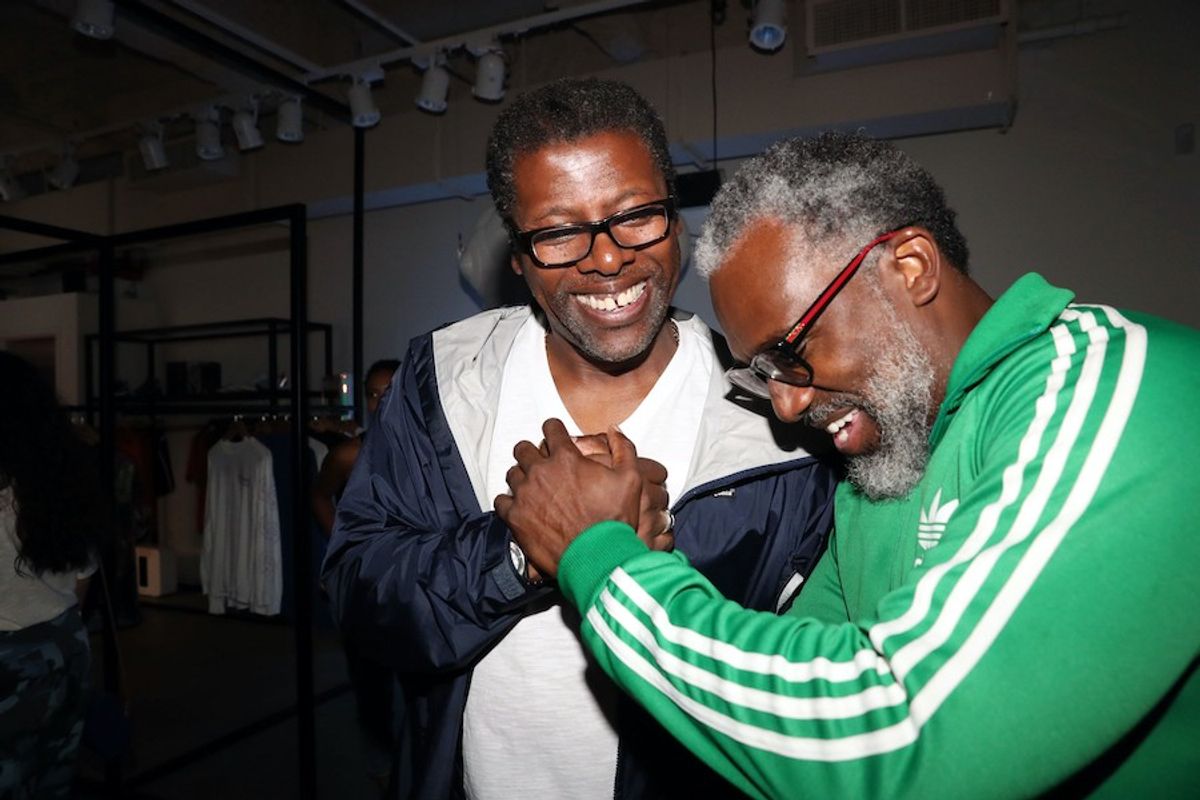
Sneakersnstuff ricky powell exhibition 2
Photo by Johnny Nunez for WireImage via Getty Images

Pioneering hip-hop photographer, Chi Modu, has died. He was 54-years-old.
Modu's passing was announced by his family on his Instagram account on Saturday, May 22nd (see below.) "Our hearts are broken... We continue the fight," the post reads. However, a cause of death was not revealed.
Born in Nigeria and raised in New Jersey, picked up photography while attending Rutgers University. After a stint at The International Center of Photography in New York, Modu landed his first gig with the Harlem-based publication, New York Amsterdam News. In 1991, Modu joined The Source as a director of photography and quickly became a defining lens for hip-hop journalism throughout the decade. At The Source, he was responsible for capturing some of the earliest (and most iconic) glimpses of soon-to-be rap royalty at a crucial and tense moment in hip-hop history.
Many of those images have gone on to be almost archetypal representations of their subjects. Biggie and The Twin Towers? Modu. Method Man with the fangs and the Philly? Modu. The cover of Mobb Deep's The Infamous?Modu.
Following the announcement of his death, fans and peers flooded social media with fond memories and appreciation. Jonathan Schecter, founding editor at The Source, recalled first meeting the young photographer in a series of posts on Twitter. "What made Chi special as a photographer was not just his technical skill, but the genuine and human approach to his work," Schecter said. "He made the artists feel comfortable, they would relax and chat as among friends. And then he captured their true essence on film," Schecter added.
You can read through some of the notes from friends and fans below.
\u201cRIP to Chi Modu, the man behind some of Hip-Hop\u2019s greatest photos. A true legend and documentarian. He will be missed. \ud83d\udd4a\u201d— Andrew Barber (@Andrew Barber) 1621714709
\u201cI need everyone to understand that Chi Modu gave us some of THE greatest Hip Hop photos of all time. A true legend gone too soon. \ud83d\ude4f\ud83c\udffd\ud83d\udd4a\u201d— Chris Heezy Hurtt (@Chris Heezy Hurtt) 1621709792
\u201cRest In Peace to an absolute legend photographer Chi Modu \ud83d\udcf8\u201d— Joshua Kissi (@Joshua Kissi) 1621708882
\u201crest in peace to the great Chi Modu. Sad to see this news. Among his many brilliant shots, I will always most remember/cherish these photos of Bone Thugs taken in Cleveland, 1995.\u201d— Hanif Abdurraqib (@Hanif Abdurraqib) 1621712373
\u201cGive Chi Modu a whole MUSEUM \ud83d\ude4f\ud83c\udfff\u201d— Michael Fuggin Christmas (@Michael Fuggin Christmas) 1621706613
\u201cRIP Chi Modu, a valued member of The Source Mind Squad and witness to so many incredible moments in hip-hop history.\u201d— Cheo Hodari Coker (@Cheo Hodari Coker) 1621724768